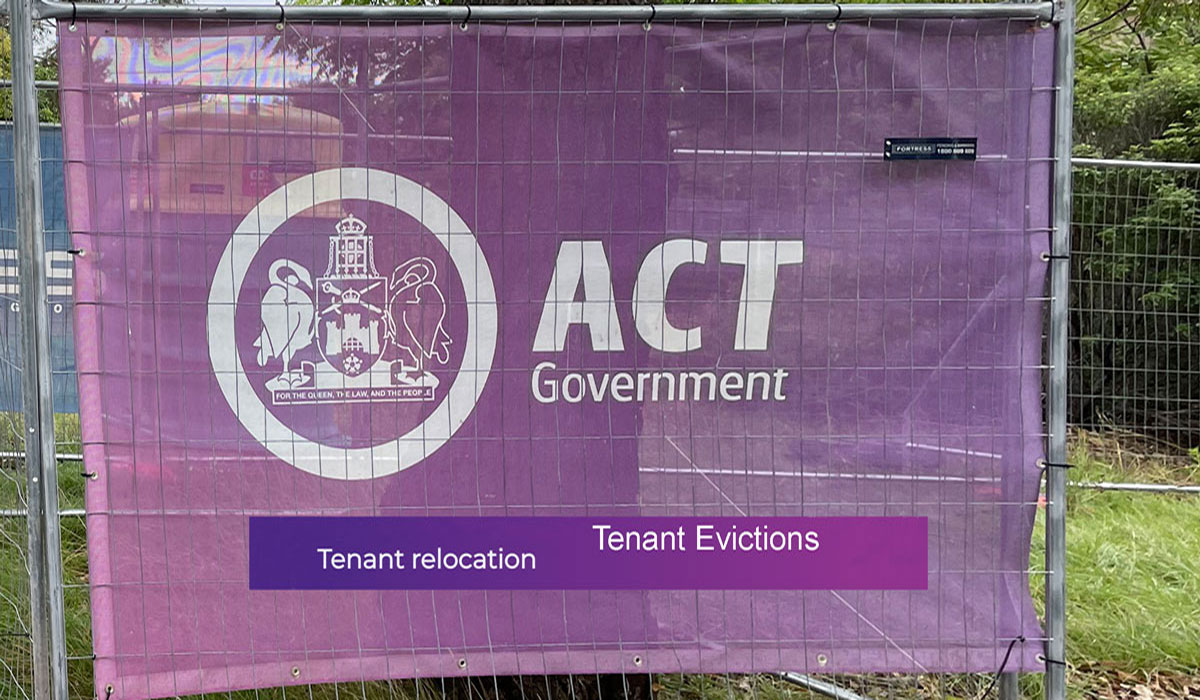
There are discussions within the community sector puzzling over the motives of the ACT government’s politicians and bureaucrats when it comes to their managing planning, development and housing.
Last week it was reported that the planning minister and his directorate had fiddled with the 2019 announced draft Variation 369 to regulate limited improvements (small steps at least) in greenery on suburban developments as well as other benefits such as permeable surfaces.
The community sector raised concerns that the latest variation of the variation could result in very little of the environmental benefits initially announced. Their letter outlined their interpretation of how the legislation would no longer deliver.
The political response was mixed. Some stated that there was no problem or stated that it was not their portfolio area and therefore had little to say.
Worse still were misleading comments that the variation was delayed and changed to allow developments already underway to go ahead (say goodbye to more the trees). This ignored usual governance practice that new legislation applied to new developments not those already underway.
The planning minister was quoted in other media as saying that the latest complicated variations to the original variation were temporary and that any issues would be addressed with the review of planning later in the year. That made sense!
The situation is totally confusing. People have spent hours trying to unravel what the current version of the legislation means. No-one can understand why the changes were made (except to assist developers) and suspect the latest changes were slipped in hoping that no-one would notice.
This mess comes on top of the current outrage being expressed about the cruel manner in which the government issued forced relocation notices (evictions) to more than 300 ACT Housing tenants. Much has been written about this in “City News” this week and last week – as well as in a submission by the community sector.
The consensus is that the ministers involved, Yvette Berry (ACT Labor) and Rebecca Vassarotti (ACT Greens), are not going to back down as the need to raise needed cash through property sales is far more important to their government than the welfare and wellbeing of the tenants – many being older women.
Do ACT Greens or Labor politicians measure their success by how much they no longer respect mothers and the elderly?
My piece published this week outlined a range of issues around how the government is pretending to deal with the city’s green infrastructure, biodiversity and mature trees.
ACT government ministers with links to these areas of planning, environment, housing, development, social housing and services take every opportunity to pass the buck to someone else. The attitude is that if there are issues, and they express doubts about stuff being raised by residents, then it must be up to someone else to do something about them. Anyone but those paid to do their jobs.
One of the clear messages sent by voters to politicians during the federal election, was that people had had enough of spin, lies, alternative facts and an inability to emphathise and listen.
Many politicians became “former” politicians as a result of ignoring these warnings of “enough is enough”. Zed Seselja and that Advance Australia fringe group did not listen – and Seselja paid the ultimate price. Soon to be the former Senator for the ACT.
Nothing will stop the ACT Greens and Labor in government from doing what they believe they are entitled to do. They carry on as if they were untouchable. People wonder whether spin is used to cover up and distract from incompetence, stupidity or naivety or by others to deceive and to mislead.
Residents are generally very polite about these disturbing governance matters. They have become unsettled about the motives of the ACT government on these crucial social and urban problems. But one thing is clear. More people are becoming less trusting of and disillusioned with this ACT Greens/Labor coalition government.
Those in this government are making it obvious almost daily that they no longer see any priority in empathising with residents. They are almost daring the voters to make serious changes.
Conversations are happening about what a representative government should look like and how they should conduct themselves. This may involve independents being nominated to replace the out-of-touch and sometimes cruel party politicians who presently dominate this ACT government.
This city desperately needs a government made up of individuals who remain community focused and transparent once they move into positions of privilege and power.